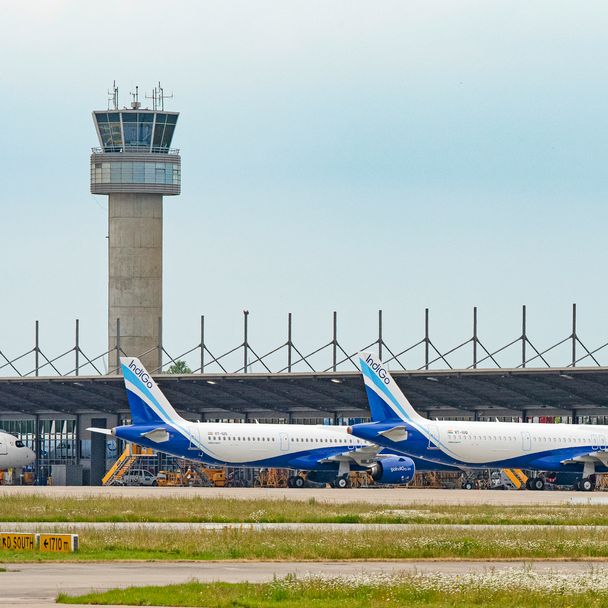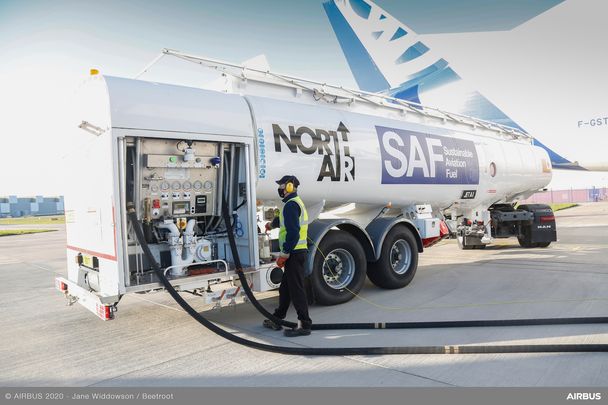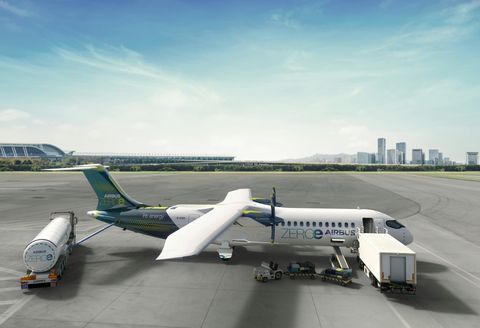At Airbus, SAF-fuelled ferry flights are cleared for take off

Airbus is convinced that Sustainable Aviation Fuel (SAF) will play a major role in decarbonising aviation. In fact, we’ve already set ourselves a goal: to reach 10% pure SAF in the fuel mix of our own operations in 2023. We want to cover ferry flights too, which are when airlines fly a new aircraft to its home base. Airbus is offering up to 5%-pure SAF, free of charge, to customers taking delivery of aircraft in Toulouse and Hamburg.
Airbus’ ambition is to play an active role in promoting Sustainable Aviation Fuel (SAF) as a credible and efficient lever for decarbonisation. Being a leader means taking concrete actions, including when accompanying our customers.
Already this year, Airbus has committed to using 10%-pure SAF in our commercial aircraft and helicopter internal operations. Now we are offering up to 5%-pure SAF free of charge to customers departing from the Toulouse and Hamburg delivery centres. The first airline to benefit from this offer was Indigo, whose new A320neo took off from Toulouse on 3 July.
Airbus’ SBTi (Science-Based Targets initiative) targets for Scope 1, 2 and 3 carbon emission reduction were validated in January 2023. Actively supporting the adoption of SAF is key to meeting those targets.
Sustainable Aviation Fuel explained by Airbus' experts
At their discretion, customers ferrying aircraft from our Tianjin, China, and Mobile, Alabama, delivery centres to their home base are already offered varying concentrations of SAF. Now our delivery teams are offering 5%-pure SAF to all* customers departing Toulouse, and from September, to those taking delivery in Hamburg.
To achieve this objective, Airbus has secured 6,805 hectolitres (HL) of SAF with different blend ratios, ranging from 30 to 49%. This will create around 18,000 HL, or 475,500 US gallons, of blended SAF for 2023 alone.
Indigo was the first airline to take advantage of this offer, with an A320neo departing Toulouse for Delhi in early July.
*Contractual terms and conditions apply
“Naturally Airbus’ ambition goes beyond 2023. We’re working to secure SAF supplies into next year and beyond, for ferry flights departing all our delivery centres,” says Airbus’ head of SAF and fuel efficiency Julien Manhes. “We’re sending a strong signal to our customers, the fuel ecosystem, and the wider sector: SAF has arrived.”

Airbus recently announced a partnership with LanzaJet to support building SAF facilities which will use LanzaJet’s proprietary Alcohol-to-Jet (ATJ) technology pathway and accelerate the certification and adoption of 100% drop-in SAF, which would allow existing aircraft to fly without fossil fuels.
Yet another step to investigate and support certification of 100% drop-in SAF, the partnership follows last year’s announcement with renewables producer Neste that sees the two companies cooperate to accelerate the transition to sustainable aviation fuels. Airbus is fully engaged in boosting SAF production worldwide.


